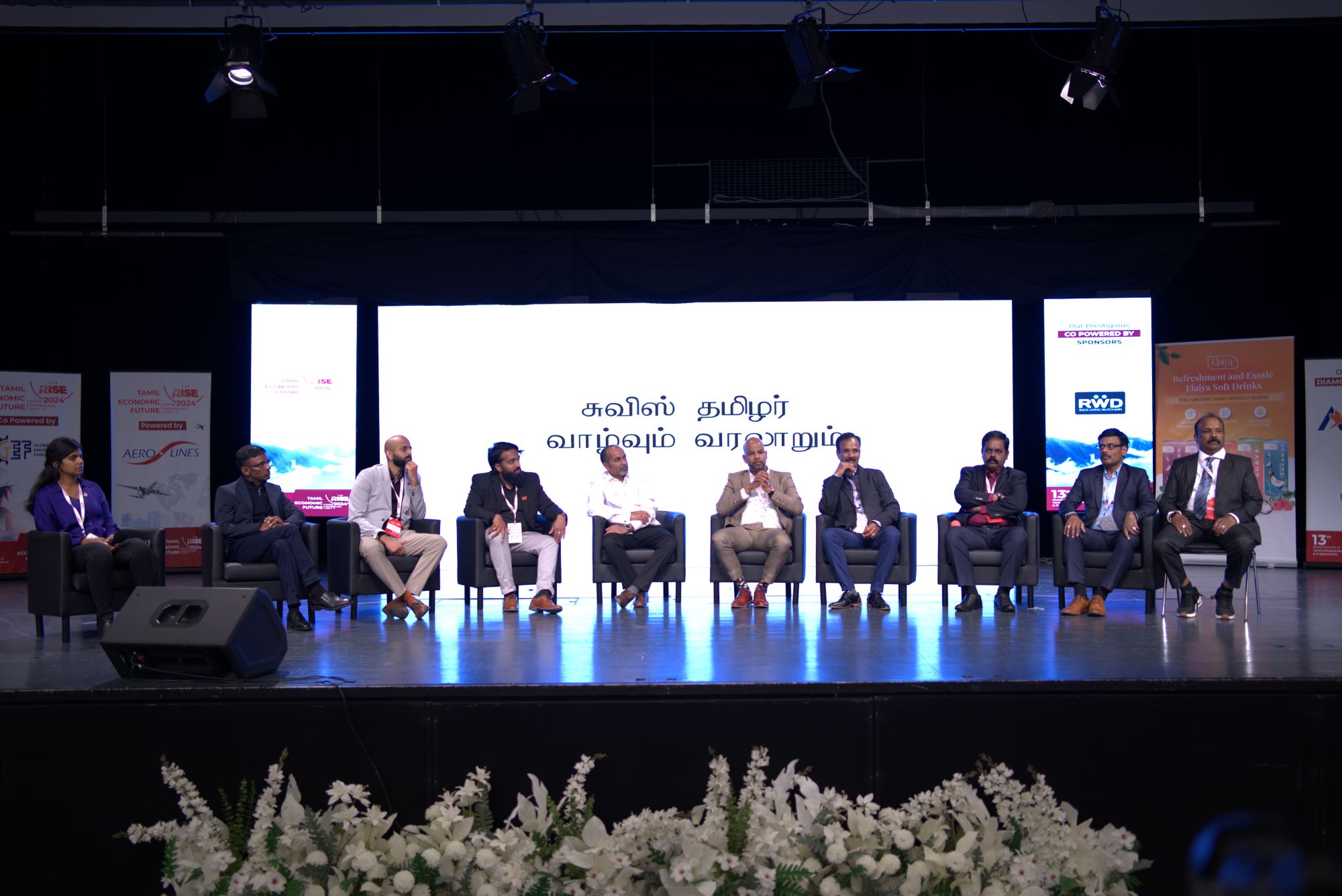
A three-day “Tamil Economic Future Summit'' was held in Davos, Switzerland last month with Tamils from around the world attending to discuss advancing the interests and causes of the global Tamil community.
The summit, organised by RISE and hosted by the Swiss Tamil Community, saw Eelam Tamil politicians such as Shritharan Sivagnanam, leader of Ilankai Thamil Arasu Katchi (ITAK), alongside other Tamil leaders from the island including Eastern Province Governor Senthil Thondaman, President of Ceylon Workers Congress (CWC), participating with Tamil entrepreneurs, CEO’s, intellectuals, high state position holders and researchers.
%20new%202.jpg)
The summit started on the 7th of June and was the 13th such meeting to take place, held under the theme “Uniting Global Tamils to shape a more equitable, progressive, peaceful, and environmentally sustainable world”.
The focus of this summit was on discussing various topics and their opportunities and obstacles. Key topics were strengthening Tamil global civil society, economic and business development, cultural and heritage projects, networking, collaboration, and exploration of public-private-philanthropic partnerships for Tamil Economic development in North-East of Sri Lanka and the 44-year history of Eelam Tamils in Switzerland.
%20new%203.jpg)
In a panel discussion about development in North-East-Central for Sri Lanka, MP Shritharan pointed out the discrimination, that the development of the North-East is facing, as well as the difficulties and the inefficiency of the actual development done by the state and non-state actors.
“The economic strength of the Eelam Tamil diaspora will reach high levels and manifest in societal development globally. Economic integration of the Tamil homeland and Tamil diaspora must be architected,” said Pirakash Vivekananthan, a Swiss Tamil and President of Tamil Economic Forum. He and Uthayan Pathmananthan co-presented 2 of the 8 mandates that were announced at this summit. These two mandates are directly related to Tamil Eelam.
%20new%204.jpg)
Over 500 Tamils from 21 countries (Australia, Bahrain, Canada, Cayman Islands, France, Germany, India, Kuwait, Malaysia, Netherlands, Norway, Oman, Qatar, Saudi Arabia, Singapore, South Africa, Sri Lanka, Switzerland, UAE, United Kingdom, USA) took part.
%20new%205.jpg)
